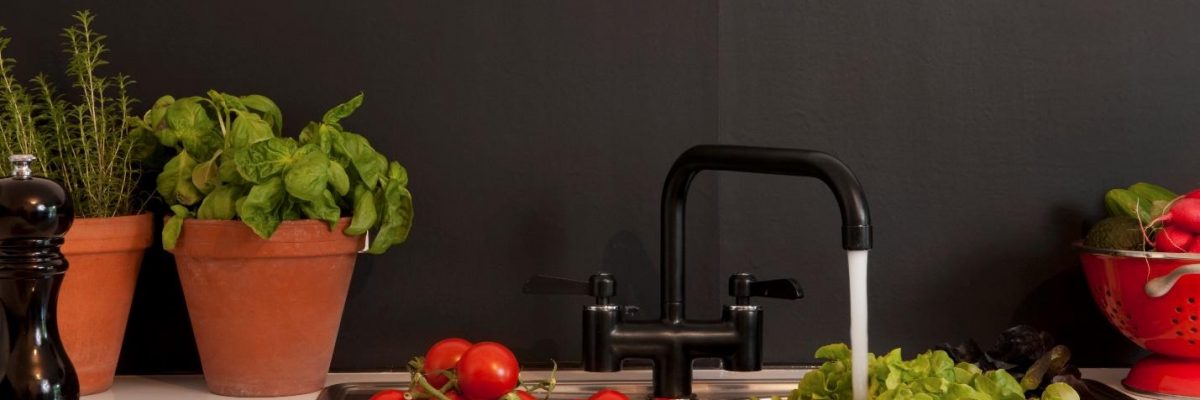
How to Get Rid of Bad Sink Drain Odours
A smelly sink is a common, but unfortunate, issue for many Canadian homeowners. Therefore, knowing how to get rid of sink smells is crucial. Let’s be real—unpleasant odours cascading from your drain will only cause your bathroom or kitchen to be uncomfortable to be in, and that’s the last thing any homeowner wants!
Understanding the causes and solutions behind this can mitigate future issues, and help you stay in control of a stinky sink drain for good.

My Sink Drain Smells Bad: What’s Causing This?
There are many types of kitchen sinks, just as there are many reasons why you’re experiencing a foul smell. In Ontario, the most common culprits are:
- Food particles: Leftover food can decompose in the drain, causing bad smells.
- Grease build-up: Pouring grease down the drain leads to a residue that traps odours within your pipes.
- Bacterial growth: Warm, moist environments in drains are ideal for bacteria, resulting in foul smells.
- Dry P-trap: A dry P-trap allows sewer gases to enter the home, causing unpleasant odours.
5 Effective Methods to Eliminate Sink Drain Odors
Just as it’s vital to know how to fix a leak under your kitchen sink, you should be ready to act whenever your kitchen sink drain smells bad. Here are five battle-tested methods that can help deodourize your drain today.
-
Boiling Water Flush
Pour boiling water slowly down the drain to dissolve built-up grease and flush away debris that may cause clogs. This simple method can effectively clear minor blockages and keep your pipes flowing smoothly.
-
Lemon and Baking Soda
To naturally freshen up your drain, start by sprinkling a generous amount of baking soda directly into the drain. Next, pour freshly squeezed lemon juice over the baking soda. Allow the mixture to sit for ten minutes to fully activate. Finally, rinse thoroughly with hot water to wash away any residue, leaving your drain clean and smelling fresh.
-
Salt and Ice Cubes
To clean your garbage disposal and eliminate odours, grind a handful of ice cubes mixed with coarse salt. The ice helps dislodge debris stuck to the blades, while the coarse salt scrubs away residue and builds up, leaving your disposal fresh and functioning efficiently.
-
Clean the P-Trap
Remove and clean the P-trap to eliminate trapped debris that can cause unpleasant odours and keep your space smelling fresh.
-
Baking Soda and Vinegar
A classic combination for clogged drains and sinks that deserves an honourable mention: combine 1/2 cup of baking soda with 1 cup of white vinegar. Pour into the drain, let it sit for 15 minutes, then flush with hot water. It’s worth noting that these agents perform better on their own. Vinegar and baking soda seem to be placebos, or at least less effective than other methods.
Preventative Measures for A Smelly Sink Drain
Canadians grapple with how to get rid of sink odour throughout the year. This can be experienced more often during the warmer months when common plumbing issues arise, and the humidity allows the smell to become more prevalent.
Bearing that in mind, here are a few proactive measures you can take:
- Regular cleaning: Use natural cleaners like baking soda and vinegar weekly to prevent build-up.
- Avoid disposing of grease in drains: Dispose of grease in a container instead of pouring it down the sink.
- Install drain screens: Use screens to catch food particles and prevent them from entering the drain.

Source: Canva
Why Else Might A Sink Drain Stink?
If you’ve tested the methods above to no avail, there are a few other causes worth considering.
Hard Water Deposits and Humidity
In cities with high iron or mineral content in the water, like Toronto and Cambridge, hard water can leave behind deposits that not only stain sinks with orange or reddish streaks, but also contribute to unpleasant smells.
These deposits can build up over time, creating an ideal environment for bacteria to grow. In such cases, chemical cleaners specifically formulated to break down mineral build-up may work better than natural methods. Regular maintenance with vinegar can also help dissolve mineral deposits and reduce odours.
What About Mould in Your Drain?
Mould is another common cause of a smelly sink drain, especially in humid environments or drains that aren’t used frequently. Moisture, warmth, and organic matter create the perfect conditions for mould and mildew to grow inside your drainpipes. Mould may require bleach and/or expert insight and removal, as it can be extremely toxic.
Hair and Toothpaste
Bathroom drains are especially prone to clogs and slow draining caused by hair, soap scum, and even toothpaste residue. Over time, these materials create a sticky blockage that traps debris and leads to foul smells.
A drain snake is an excellent tool for removing these clogs. Simply insert the snake, rotate it to catch the blockage, and pull it out. This physical method is often more effective than relying solely on chemicals, which may not penetrate larger clogs. By addressing these less obvious causes, you can tackle even the most persistent odours in your sink or bathroom drains.
Why Choose PlumbWize?
For reliable, professional plumbing services in the Greater Toronto area, PlumbWize is your go-to solution! Our experienced team tackles everything. We know how to remove smells from kitchen sinks, and we also expertly handle plumbing and sewer emergencies with care.
Locally owned and operated, we understand the challenges faced by Ontario homeowners when emergency plumbing and sewer backups happen. That’s why we offer transparent pricing and exceptional customer care. Don’t let your clogged, smelly sink issues linger—contact us today for expert emergency plumbing assistance.





 0
0 905-332-8222
905-332-8222